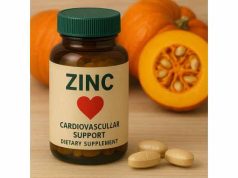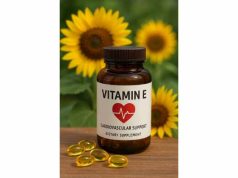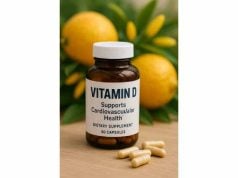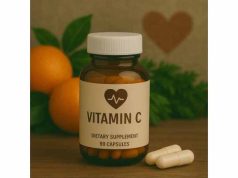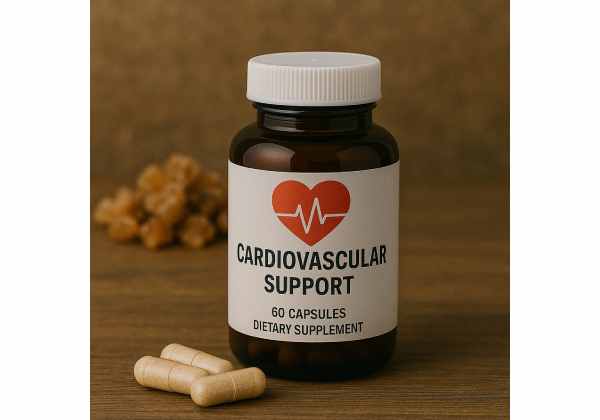
Guggul, derived from the resin of the Commiphora mukul tree, has been integral to traditional wellness systems—particularly Ayurveda—for centuries. Today, it’s gaining renewed recognition for its potential to enhance heart health, promote balanced cholesterol levels, and shield against various cardiovascular concerns. By helping regulate lipid metabolism and reduce inflammation, Guggul can support better arterial function and overall circulatory well-being. In this comprehensive guide, we’ll explore its historical background, delve into key active compounds, review scientific evidence regarding cardiovascular benefits, discuss safe usage and dosing, and address common questions. Let’s uncover how Guggul might fit into a heart-focused health strategy.
Table of Contents
- Thorough Introduction to Guggul Resin and Its Background
- Underlying Processes: How Guggul Affects Heart Function
- Clinical Evidence for Heart and Vascular Wellness
- Suggested Dosage, Practical Use, and Safety Insights
- Guggul (Commiphora mukul) FAQ: Straightforward Answers
- References and Research Publications
Thorough Introduction to Guggul Resin and Its Background
Guggul is a gum resin obtained from the Commiphora mukul tree, native to semi-arid regions of India and neighboring countries. This resin is often harvested by making small incisions in the tree’s bark, allowing the sap to ooze out and solidify. Revered in Ayurveda for centuries, Guggul has traditionally been used to address various conditions, including joint concerns, body weight regulation, and, most notably, lipid imbalances that can impair heart and vascular health.
Traditional Roots and Cultural Importance
In ancient Ayurvedic texts such as the Charaka Samhita, Guggul is lauded for its potent detoxifying abilities and capacity to balance metabolism. Practitioners commonly prescribed Guggul in combination with other herbs—like Triphala or ashwagandha—to amplify its effects. It featured in remedies believed to clear “ama” (toxins) from the body and invigorate digestive fire, factors that were considered essential for longevity and vitality. Over generations, Guggul-based formulations spread beyond India to regions of the Middle East and Africa, reinforcing its legacy as a versatile therapeutic agent.
The Commiphora mukul Tree
- Physical Characteristics: The Commiphora mukul tree typically reaches heights of two to three meters. It bears thorny branches and small, trilobed leaves.
- Climate and Growing Conditions: Thriving in arid to semi-arid climates, this tree can withstand intense heat and minimal rainfall. Its hardy nature makes it an ideal species for regions prone to water scarcity.
- Harvesting the Resin: Harvesting involves creating shallow cuts in the bark; once the viscous sap oozes out, it hardens into fragrant yellowish-brown gum droplets. This resin is then collected, cleaned, and further processed into powders or extracts for supplement use.
Key Bioactive Components
The diverse therapeutic profile of Guggul stems from its unique chemical constituents. While the resin contains a range of phytosterols, essential oils, and terpenoids, two standout compounds—commonly called “guggulsterones” (Z-guggulsterone and E-guggulsterone)—have drawn the most scientific interest. These guggulsterones are often connected to Guggul’s traditional reputation for:
- Cholesterol Management: Supporting healthy lipid levels and reducing LDL (“bad”) cholesterol.
- Anti-Inflammatory Properties: Helping diminish markers of chronic inflammation, which can affect cardiovascular performance.
- Weight Management: Encouraging a balanced metabolic state, which can indirectly ease strain on the heart.
Refinement and Modern Supplement Forms
As demand for Guggul soared in global markets, modern extraction processes were developed to standardize its active compounds, ensuring consistent potency and quality. Supplements now commonly advertise a fixed guggulsterone percentage (for instance, 2.5% or 10%), allowing healthcare providers and consumers to tailor dosages more precisely.
Common formulations include:
- Capsules or Tablets: Often standardized to contain a specified range of guggulsterones.
- Powders: Typically used in traditional Ayurvedic recipes or mixed into drinks for ease of consumption.
- Topical Pastes or Creams: Employed for dermatological and joint-support reasons, though less common in Western markets.
Guggul for Heart Health Awareness
In recent years, as more people seek natural methods to support cardiovascular wellness, Guggul has become a highlight in research circles. Not only does it appear to influence cholesterol pathways, but it may also offer additional metabolic advantages—like supporting a healthy weight—that collectively safeguard the cardiovascular system. With heart disease remaining a leading cause of morbidity worldwide, interest in natural allies like Guggul for heart health has never been higher.
Underlying Processes: How Guggul Affects Heart Function
The cardiovascular benefits of Guggul are rooted in a set of biochemical mechanisms that impact lipid metabolism, inflammatory pathways, and arterial integrity. While many herbs claim to support cardiovascular health, Guggul’s unique constituents—particularly guggulsterones—appear to act upon several critical processes simultaneously, producing a broad-based effect.
Modulation of Cholesterol and Triglycerides
One of the most notable actions of Guggul for cardiovascular health is its capacity to influence cholesterol levels. Research suggests that guggulsterones can:
- Stimulate LDL Receptor Function: By enhancing the function or expression of LDL receptors on liver cells, Guggul may assist in drawing more LDL cholesterol from the bloodstream for breakdown and removal.
- Reduce Triglyceride Synthesis: Preliminary studies show that Guggul can help lower triglyceride production in the liver, preventing dangerously high serum levels that strain the heart and blood vessels.
- Support HDL (“Good” Cholesterol): Some data indicate that consistent Guggul usage might modestly improve HDL concentrations, further promoting a healthier lipid balance.
Anti-Inflammatory Pathways
Chronic inflammation is widely recognized as a significant contributor to cardiovascular disease. Persistent inflammatory signals can damage arterial walls, accelerate plaque formation, and make blood vessels more vulnerable to clots. Guggulsterones appear to:
- Inhibit Pro-Inflammatory Cytokines: Substances like interleukins (IL-1, IL-6) and tumor necrosis factor-alpha (TNF-α) often rise in inflammatory states. By moderating these cytokines, Guggul can help maintain a calmer systemic environment.
- Block NF-κB Activation: NF-κB is a key transcription factor fueling inflammatory pathways. Studies suggest Guggulsterones may interfere with NF-κB activation, thus halting downstream processes that otherwise culminate in tissue irritation and vascular damage.
Antioxidant Safeguards
Free radicals, byproducts of normal metabolism, can become damaging when they accumulate excessively. These reactive oxygen species (ROS) oxidize LDL cholesterol, which then more readily infiltrates arterial walls, intensifying atherosclerosis risk. Guggul’s naturally occurring phytoconstituents may help neutralize ROS, limiting oxidative harm. By minimizing oxidation, Guggul can also:
- Protect Endothelial Cells: The delicate inner lining of arteries is critical for regulating blood flow and clotting. Keeping it intact promotes smoother circulation and helps maintain stable blood pressure.
- Improve Overall Vascular Tone: An environment with fewer free radicals fosters more elastic and responsive blood vessels, easing the burden on the heart.
Thyroid and Metabolic Effects
Guggul has a long-standing reputation in Ayurveda for supporting healthy thyroid function. The thyroid gland, which regulates metabolic rate, can indirectly impact cardiovascular performance. If metabolic imbalances lead to weight gain or shifts in lipid metabolism, the heart may experience additional stress. Although Guggul’s exact impact on thyroid hormones in humans is still under investigation, some animal studies suggest that it can nudge thyroid hormone levels, thereby influencing weight and cholesterol regulation.
Platelet Aggregation and Blood Coagulation
Balancing platelet activity is essential for avoiding excessive clotting, which can precipitate heart attacks and strokes. While Guggulsterones are not typically considered strong anticoagulants, some research points to their mild capacity to inhibit platelet aggregation. This mechanism, though subtle, may help reduce the chance of clot-related cardiovascular incidents. Caution is advised, however, for those on prescription blood thinners or who have clotting disorders, as concurrent supplementation might amplify bleeding risks.
Synergy with Other Heart-Supportive Nutrients
An appealing attribute of Guggul is its synergy with other nutraceuticals. Many people who use Guggul for heart health pair it with:
- Omega-3 Fatty Acids (Fish Oil): Combining Guggul’s lipid-lowering properties with the anti-inflammatory effects of omega-3s may produce a multifaceted approach for supporting cardiovascular function.
- Coenzyme Q10 (CoQ10): Known for its antioxidant and mitochondrial-support roles, CoQ10 can help fortify the heart muscle. Guggul’s complementary mechanisms may amplify these protective effects.
- Dietary Fibers (e.g., Psyllium): Soluble fibers bind cholesterol in the digestive tract, while Guggul addresses cholesterol metabolism through the liver. The combined effect can lead to a more substantial improvement in lipid profiles.
Multi-Faceted Influence
Guggul stands out among herbal supplements because it seems to act on multiple metabolic targets at once: from the liver’s LDL receptor expression to inflammatory gene regulation. This comprehensive approach can create ripple effects across the cardiovascular system, making it a compelling choice for those aiming to manage both cholesterol levels and related factors like inflammation and oxidative stress.
Clinical Evidence for Heart and Vascular Wellness
While Guggul’s historical record in Ayurveda is substantial, modern scientific research has played a pivotal role in validating its health claims—especially regarding heart health. A growing body of animal studies, clinical trials, and systematic reviews provides detailed insights into how Guggul supplementation affects lipid profiles, vascular integrity, and more.
Lipid Profile Improvements
The spotlight on Guggul for cardiovascular health often shines brightest on its ability to modulate lipid levels:
- Reduction in Total Cholesterol: Several clinical trials reported that participants using standardized Guggul extracts for periods ranging from four weeks to three months experienced noteworthy drops in total cholesterol. In many studies, these decreases were in the range of 10–20%.
- Influence on LDL and Triglycerides: Beyond total cholesterol, Guggul frequently demonstrates beneficial shifts in LDL (“bad”) cholesterol and triglyceride levels, although individual results can vary. Some users see modest improvements, while others report more significant changes.
- Potential Increase in HDL Cholesterol: While not universally documented, certain participants in these studies also observed a small boost in HDL (“good”) cholesterol levels, amplifying the overall heart-protective value of Guggul.
Anti-Inflammatory and Antioxidant Confirmation
Human trials have further tested Guggul’s capacity to reduce markers of inflammation and oxidative stress. Investigators often measure:
- C-Reactive Protein (CRP): Elevated CRP is a risk factor for cardiac events. Some research indicates that Guggul supplementation lowers CRP levels, pointing to diminished systemic inflammation.
- Oxidative Stress Biomarkers: Malondialdehyde (MDA) and other oxidative byproducts decrease in individuals using Guggul, implying that its antioxidant traits hold clinical significance.
Thyroid-Related Observations
While not the primary focus in heart-specific research, Guggul’s influence on thyroid hormones could have indirect cardiovascular implications. A handful of small clinical studies hinted that Guggul might bolster T3 hormone conversion, though these findings remain preliminary. Improved thyroid activity can lead to enhanced metabolic rates, beneficial weight shifts, and, by extension, a more favorable environment for heart health.
Meta-Analyses and Systematic Reviews
To establish clearer patterns, researchers have begun pooling data from multiple trials through meta-analyses:
- Consistency in Lipid Reduction: These reviews generally confirm that Guggul’s main draw is its lipid-lowering capacity, though degree of effect varies among individuals. Differences in standardization, guggulsterone content, and participant demographics can all impact outcomes.
- Safety Profile Noted: While some users report mild digestive upset or skin reactions, serious adverse events remain infrequent in short- and intermediate-term usage.
Comparative Studies
On occasion, Guggul-based supplements have been pitted against conventional lipid-lowering medications like statins. In some older Indian clinical studies, Guggul displayed comparable efficacy to certain statins in mild to moderate hyperlipidemia. However, subsequent research yields mixed results. Importantly, Guggul does not necessarily replace pharmaceutical interventions for individuals with significant heart disease risk, but it may serve as an ancillary or preventive measure.
Potential Confounding Factors
It’s worth noting that outcomes can vary significantly depending on:
- Dietary Habits: Participants with more balanced diets typically show more dramatic improvements, as the synergy between a nutrient-dense eating plan and Guggul for cardiovascular health can be powerful.
- Exercise Levels: Studies frequently highlight that combining exercise with Guggul supplementation yields better lipid and body composition results than Guggul alone.
- Extraction Standards: The precise standardization of guggulsterones, purity testing, and product quality can differ widely among brands, leading to inconsistent results across trials.
Ongoing Research Directions
Researchers continue to investigate Guggul’s role in advanced lipid subfractions (like small dense LDL particles), its ability to mitigate nonalcoholic fatty liver disease (NAFLD), and potential synergy with other nutraceuticals for comprehensive metabolic management. As new data emerges, it is likely to refine our understanding of Guggul’s exact mechanisms and scope in heart-focused interventions.
Suggested Dosage, Practical Use, and Safety Insights
Incorporating Guggul (Commiphora mukul) for heart health requires a balanced approach that accounts for dosage levels, potential interactions, and individual health circumstances. Understanding how to use Guggul effectively can help maximize benefits while minimizing risks.
Typical Dose Ranges
- General Cardiovascular Support: A common recommendation is 25–75 mg of guggulsterones per day, derived from standardized Guggul extracts (often standardized to 2.5% or 5% guggulsterones). In practice, this might translate to around 500–2,000 mg of total Guggul resin extract daily.
- Targeted Lipid Management: Higher dosages—up to 75–100 mg of guggulsterones per day—may be suggested for individuals looking to address elevated LDL or triglycerides. These doses are best undertaken with medical guidance.
- Long-Term Use: Ayurvedic tradition sometimes incorporates Guggul into daily routines for extended periods. Modern practitioners typically recommend monitoring lipid panels, liver function, and overall well-being if Guggul is used beyond three to six months.
Timing and Administration
Guggul supplements can be taken with or without food. However, many practitioners suggest taking them alongside meals to improve tolerability, especially for higher doses that might cause mild gastric discomfort. Dividing the daily dose into two or three portions (e.g., morning and evening) can maintain more stable levels of guggulsterones in the body.
Formulations and Quality Considerations
- Capsules vs. Tablets: Capsules often contain fewer fillers, making them a straightforward option. Tablets can be equally effective if properly formulated and tested.
- Powdered Resin: Some prefer using powders mixed into liquids or smoothies. While this method is more traditional, measuring precise dosages may be more challenging.
- Reputable Brands and Certifications: The market offers various Guggul products differing in purity and guggulsterone content. Look for supplements certified by third-party testers or conforming to Good Manufacturing Practices (GMP).
- Organic and Sustainably Sourced: Environmental considerations are vital, given overharvesting concerns. Choosing products sourced responsibly from India or other regions ensures both environmental protection and better quality control.
Potential Side Effects
Although Guggul is generally well-tolerated, some individuals may experience:
- Gastrointestinal Issues: Mild symptoms like bloating, diarrhea, or nausea can arise, often diminishing over time or with dose adjustments.
- Headaches or Dizziness: These are rare but can manifest in sensitive individuals.
- Allergic Reactions or Rash: Guggul’s aromatic resin may trigger skin irritations in a small subset of users.
Interaction with Medications
As with any potent herbal supplement, Guggul can interact with certain medications:
- Blood Thinners or Antiplatelet Drugs: Guggul’s mild antiplatelet action could amplify the effects of drugs like warfarin, aspirin, or clopidogrel, potentially raising bleeding risks.
- Thyroid Medications: Since Guggul may influence thyroid function, it’s important to monitor thyroid hormone levels if you’re on medications for hypothyroidism or hyperthyroidism.
- Cholesterol-Lowering Prescriptions: If you are already taking statins or other lipid-lowering agents, coordinate with a healthcare provider before adding Guggul, as combined effects might require dosage adjustments.
- Antidiabetic Treatments: Guggul’s mild impact on metabolic processes could affect blood glucose control for individuals on insulin or oral hypoglycemics.
Who Should Avoid or Use Caution?
- Pregnant and Breastfeeding Women: Although Guggul is deeply ingrained in traditional medicine, there is insufficient modern data regarding its safety in pregnancy or lactation. Seek medical supervision if you choose to use it during these periods.
- Individuals with Autoimmune Disorders: Because Guggul can influence immune function and inflammation, those with autoimmune conditions (e.g., rheumatoid arthritis or lupus) should consult a doctor before supplementing.
- People with Preexisting Liver or Kidney Issues: High doses of Guggul might strain these organs, particularly if there is an existing condition or concurrent use of multiple supplements/medications.
Complementary Lifestyle Measures
To unlock Guggul’s maximum potential for cardiovascular health, adopt these practices:
- Balanced Diet: Emphasize whole grains, fruits, vegetables, and lean proteins. Minimizing saturated and trans fats can bolster Guggul’s lipid-lowering properties.
- Regular Exercise: Engaging in cardiovascular activities like brisk walking, cycling, or swimming augments lipid management and supports overall heart function.
- Stress Management: Chronic stress can exacerbate inflammatory and metabolic disorders. Techniques like mindfulness, yoga, or breathing exercises can synergize with Guggul’s protective effects on the heart.
- Routine Check-Ups: Periodic blood tests to track cholesterol levels, liver function, and thyroid hormones are recommended for anyone using Guggul long-term.
Conclusion on Best Practices
Guggul can be a valuable ally in promoting cardiovascular wellness and preventing heart-related conditions when used thoughtfully. Selecting high-quality products, determining the correct dosage with professional input, and complementing supplementation with a healthy lifestyle are integral steps in optimizing results. Most importantly, personalization remains key—what works for one individual may need adjustment for another, especially in the context of existing health concerns or medication regimens.
Guggul (Commiphora mukul) FAQ: Straightforward Answers
Here are the most frequently asked questions about Guggul for heart health, presented with concise, clear responses to guide your decision-making.
Is Guggul for Heart Health safe for daily use?
Yes. Guggul is generally well-tolerated and often used long-term in Ayurveda. Still, consult a healthcare professional if you have preexisting conditions or take medications. Monitoring blood markers during prolonged use is advisable to ensure ongoing safety and effectiveness.
How does Guggul for Cardiovascular Health compare to statin drugs?
While some research shows that Guggul can meaningfully reduce LDL cholesterol, it may not match statins’ potency, especially in severe hyperlipidemia. It can, however, serve as a natural adjunct or alternative for mild cases. Always talk to your doctor before replacing or combining therapies.
Can Guggul benefits for heart health also support weight management?
Yes. Guggulsterones may help influence metabolism, thyroid function, and fat breakdown, which can indirectly aid weight loss. Combined with a nutritious diet and routine exercise, it can contribute to a healthier body composition and reduced cardiovascular risk.
Is Guggul helps cardiovascular function through anti-inflammatory effects?
Indeed, Guggul’s compounds can inhibit inflammatory cytokines and reduce oxidative stress, helping to protect blood vessels. This may contribute to improved circulation, endothelial function, and a lower likelihood of plaque formation in arteries.
Does Guggul interact with blood pressure medications?
It might. Guggul can sometimes alter metabolic or hormonal pathways affecting blood pressure. If you’re on hypertension treatments, it’s wise to work closely with a healthcare provider to track blood pressure changes and adjust medication dosages as needed.
What is the best way to ensure I’m getting authentic Guggul extract?
Look for products specifying standardized guggulsterone content, typically 2.5% or 5%. Certificates of analysis from third-party testers and adherence to GMP or ISO standards also indicate reliable quality and authenticity.
References and Research Publications
- Satyavati, G. V. “Guggulipid: a promising hypolipidaemic agent from gum guggul (Commiphora mukul).” Economic and Medicinal Plant Research, vol. 6, 1992, pp. 47–82.
- Sharma, S., et al. “Clinical studies on Guggul and its extracts in the management of hyperlipidemia and obesity.” Journal of Ethnopharmacology, vol. 67, no. 1, 1999, pp. 47–55.
- Nityanand, S., & Kapoor, N. K. “Hypocholesterolemic effect of Commiphora mukul resin (guggulu) in hypercholesterolemic subjects.” Journal of the Association of Physicians of India, vol. 27, no. 7, 1979, pp. 587–593.
- Ulbricht, C., et al. “An evidence-based systematic review of guggul (Commiphora mukul) by the natural standard research collaboration.” Journal of Dietary Supplements, vol. 2, no. 3, 2005, pp. 22–54.
- Ray, D., & Mukherjee, S. “Anti-oxidative properties of Guggulsterones: mechanistic insight into their effect on LDL oxidation.” Phytotherapy Research, vol. 33, no. 4, 2019, pp. 957–965.
These references collectively illustrate Guggul’s therapeutic range—from its historical use for hyperlipidemia to contemporary studies verifying its role in heart health, inflammation reduction, and lipid metabolism. While research continues, these publications lay the groundwork for understanding Guggul’s place in integrative cardiology.
Disclaimer:
The information in this article is for educational purposes only and should not replace professional medical advice. Always consult a qualified healthcare provider for personalized recommendations regarding supplements, treatments, or lifestyle changes.
If you found this guide helpful, consider sharing it with your community on Facebook, X (formerly Twitter), or any platform you prefer. Let’s stay connected and continue exploring natural ways to enhance our health together!

